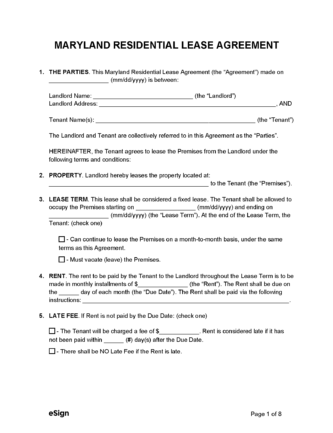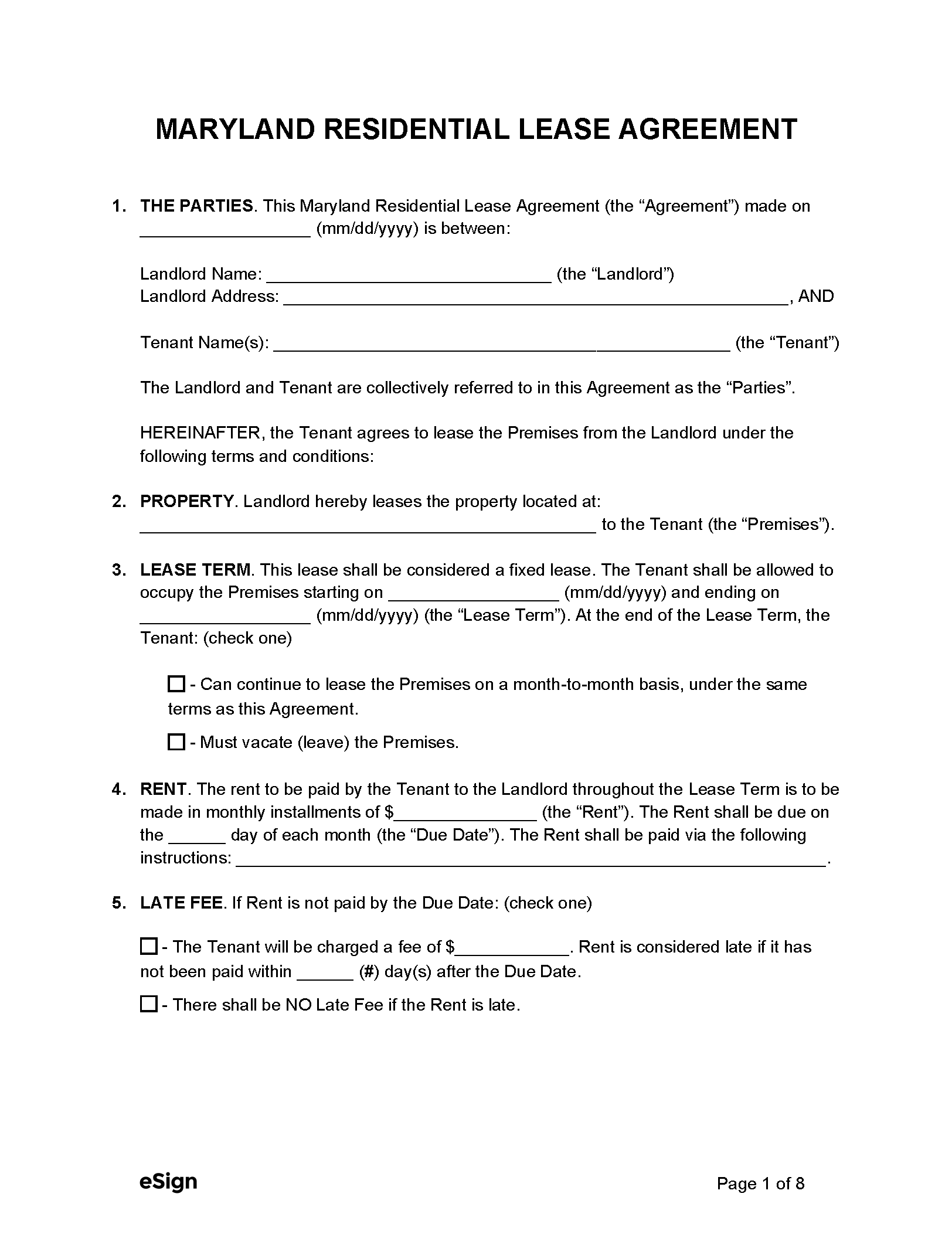Rental Application – Before signing a lease agreement, landlords should use a rental application to determine whether an applicant will be a reliable tenant.
Required Disclosures (6)
- Habitability and Safety – State law requires leases to include a statement affirming that the rental property is habitable and safe.[1]
- Lead-Based Paint Disclosure (PDF) – For all residences built before 1978, a disclosure is required to inform tenants that lead-based paint may be present on the premises.[2]
- Move-in/Move-out Checklist (PDF) – If the tenant pays a security deposit, they must be given a receipt that informs them of their right to have the landlord inspect the premises and make a list of existing damages within 15 days of occupancy.[3]
- Ratio Utility Billing System (RUBS) Disclosure (PDF) – If the landlord uses a ratio utility billing system, tenants must receive a written notice that discloses the supplied utilities and the method used to determine billing. This disclosure isn’t required if the unit is a condominium or co-op.[4]
- Security Deposit Receipt – If the landlord requires the tenant to pay a security deposit, the lease agreement must include a written deposit receipt.[5]
- Utilities and Repairs – The lease must disclose the landlord and tenant’s obligations regarding the tenant’s utilities and repairs.[6]
Rent Grace Period
In Maryland, there is no grace period for paying rent.[9]
Landlord Resources
- Landlord and Tenant – Real Property, Title 8
- Handbook (Guide) – Landlords and Tenants Tips on Avoiding Disputes

